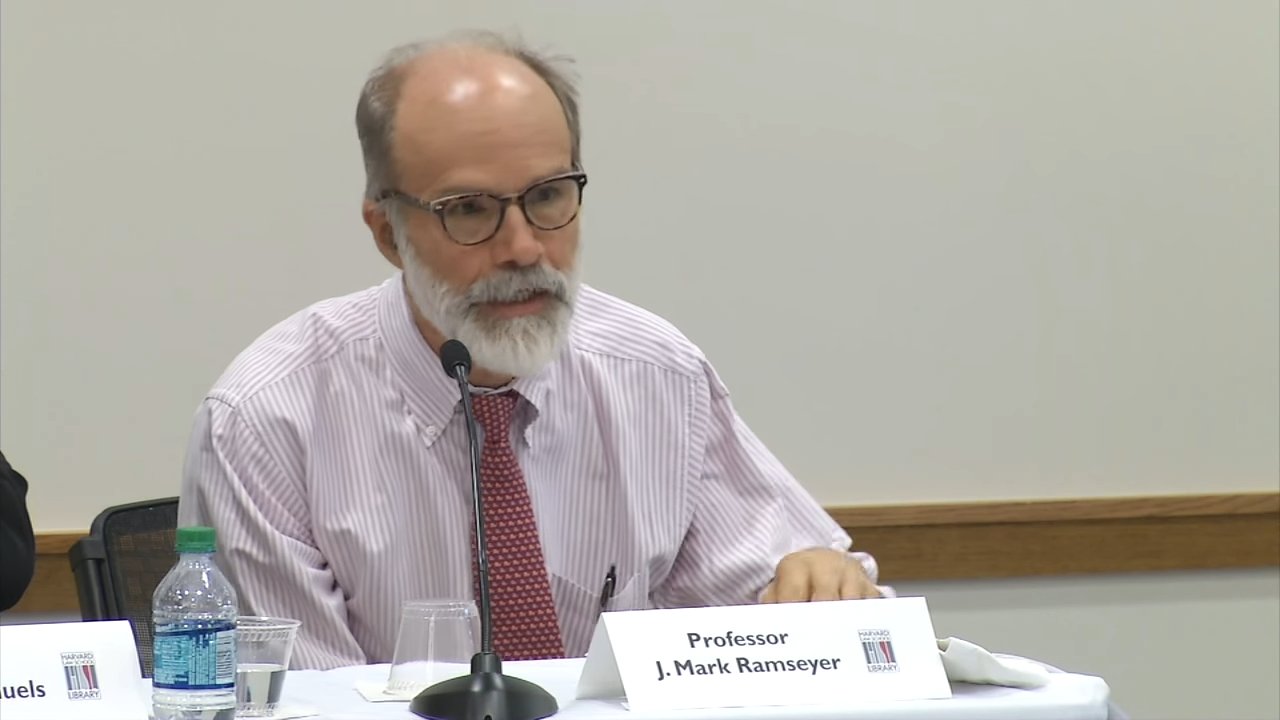 |
This photo, captured from the YouTube account of Harvard Law School, shows Professor J. Mark Ramseyer. |
A UN report on human rights in 1996 is one of a number of notable documents that recognized the existence of comfort women and concluded they had been “military sex slaves” for the Japanese military before and during World War II. But Japan contested that finding and called for a revision, which has been denied.
But editors of the publisher have decided to retain the article by Ramseyer based on the guidelines of the Committee on Publication Ethics (COPE), which is an advisory board for publishers related to the integrity of the scientific record.
“We have no evidence in any of the comments or subsequent external reviews that Professor Ramseyer is guilty of misconduct under the strict terms of the COPE guidelines,” the IRLE said.
The key standard of the judgment is to whether “Ramseyer’s interpretation and judgment regarding the way he used sources constitutes qualitative error akin to a miscalculation or an experimental flaw.”
The publisher explained that editors “can find nothing that rises to the level of clear data fabrication or falsification and the COPE description of honest error appears orthogonal to the current situation.”
But the IRLE admitted that the editors diverged in their opinions of whether the paper should be retracted based on the guidelines while agreeing that the “guidelines are clearly intended to present a high threshold for retraction.”
The editors have instead decided to retain the “Expression of Concern” to the article, which informs readers that concerns have been raised about historical evidence in the article.
But Eyal Winter, a professor of economics at Lancaster University in the United Kingdom, said he found the paper “seriously lacking scientific rigor” in his public comments which was publicly released on Monday.
“It uses anecdotal evidence/stories to make general conclusion, and it makes important assertions that are not backed by any reference,” Winter said.
Ramseyer claimed that “prostitutes have followed armies everywhere, and they followed the Japanese army in Asia” without providing any evidence or reference in support of his claims in the article.
“Should the reader be expected to take the general claim that prostitutes followed armies everywhere as an axiom?” Winter questioned. “And if so, isn't the reader at least entitled to some evidence in support of the unequivocal claim by the author that prostitutes during the time of the ‘comfort stations’ were always in excess supply?”
Winter also pointed out that Ramseyer inappropriately justified upfront payments made to comfort women by brothels. Winter said the upfront payments were not beneficial to comfort women given that the payments were not irreversible, adding that Ramseyer also mentioned that “when girls left the brothel too early the brothel would charge their parents for compensation.”
Winter also raised the possibility that brothels could exploit a rule of upfront payment as a means to pay less or lock the women into debt that would force them to stay in service.







